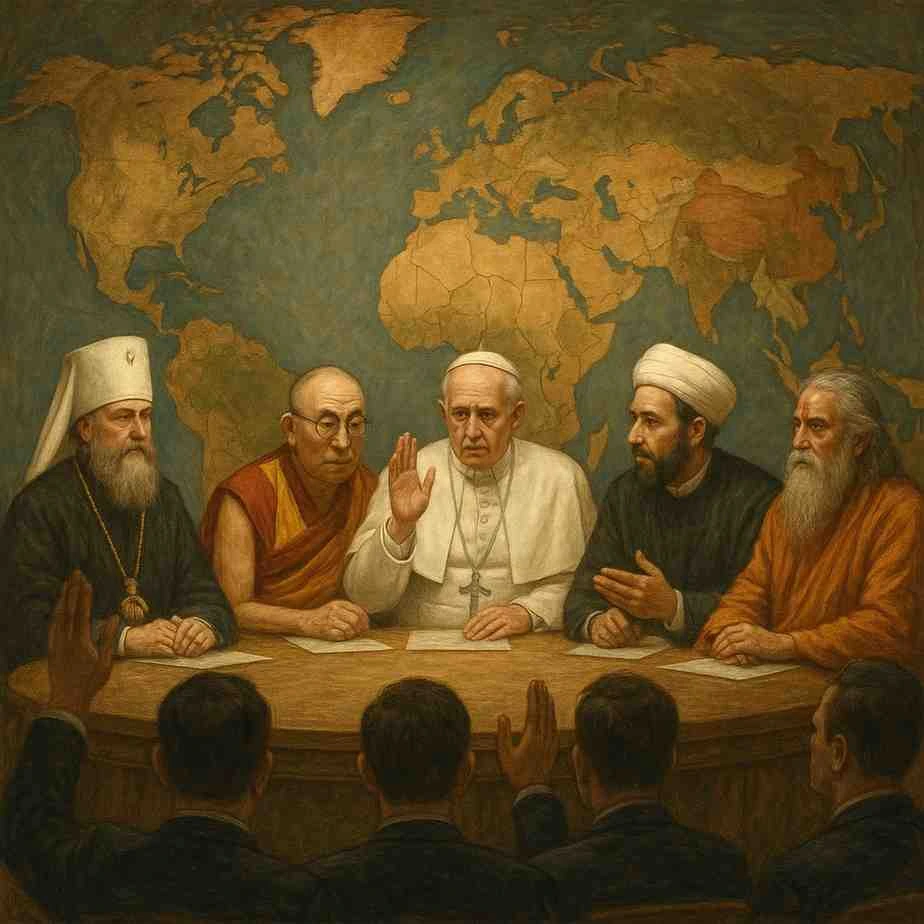How Faith Leaders Shape World Politics
Faith leaders have long played a significant role in shaping world politics. Even in modern times—where governments are largely secular and institutions work through democratic processes—the influence of religious voices remains powerful. This is because faith leaders command trust, moral authority, and cultural influence that often surpass political institutions. Their words can calm social unrest, inspire social movements, or pressure governments to act with accountability. They operate at the intersection of spirituality and public life, making them key figures in global political landscapes.
One of the main reasons faith leaders hold political influence is that they speak to the conscience of society. Political leaders deal with laws, systems, and strategies, but spiritual leaders address values, ethics, and the human heart. When a faith leader calls for peace, justice, or reform, it resonates deeply with millions of followers who see their guidance as morally grounded. This moral credibility allows them to shape national and international debates. When they speak, they are not just expressing personal views—they are echoing the collective hopes of their communities.
Across countries, faith leaders often become the voice for marginalized or oppressed groups. They raise issues that political leaders may hesitate to speak about. For example, religious figures frequently advocate for the poor, the elderly, women, and minorities. Their ability to mobilize communities gives them leverage. When a respected spiritual figure supports a cause, people gather in large numbers, increasing public pressure on governments. This type of moral mobilization can influence policies related to human rights, welfare, education, and healthcare.
Faith leaders also play a crucial role during conflicts. In times of war, social tension, or political division, they often serve as mediators. Their message of peace carries weight because many people trust religious institutions more than political ones. They can encourage dialogue between rival groups, guide communities away from violence, and promote reconciliation. In many countries, interfaith councils work directly with governments to reduce hate speech, prevent riots, and resolve disputes. Their spiritual authority helps create an environment where peace can take root.
Another important way faith leaders shape politics is through humanitarian work. From running hospitals, schools, and charities to organizing disaster relief, religious institutions often step in where governments struggle. This gives them real influence in shaping social priorities. Their on-ground involvement provides them first-hand experience of people’s struggles, making their political suggestions practical and relevant. When they speak about poverty, hunger, or injustice, it comes from direct engagement—not theory. This real-world perspective forces policymakers to take their concerns seriously.
Faith leaders also influence global politics through international networks. Many religions have communities spread across multiple countries, creating cross-border human connections. Through conferences, pilgrimages, and global coalitions, spiritual leaders discuss global issues such as climate change, poverty, and migration. When they urge world leaders to take action, it adds moral pressure on international organizations. Their influence becomes a soft power—subtle but strong enough to shift global priorities.
At the same time, faith leaders must navigate the delicate balance between spirituality and politics. While they inspire positive change, they also face challenges. If they become too closely aligned with political powers, their moral authority may weaken. People expect faith leaders to guide society ethically, not to act as political agents. Therefore, the most effective spiritual figures are those who maintain independence, speak truth to power, and uphold universal values rather than political agendas.
Another growing avenue of influence is social media. Modern faith leaders use digital platforms to reach global audiences instantly. Their messages on compassion, justice, or ethical leadership spread far beyond religious gatherings. A single online speech can shape public opinion, influence youth movements, or inspire civic participation. Digital outreach also allows them to counter misinformation, promote interfaith harmony, and encourage peaceful dialogue in a world that is increasingly divided.
In many countries, young people look to faith leaders for moral clarity, especially on issues like mental health, inequality, climate responsibility, and social justice. These leaders speak in a language of hope and purpose, not merely politics. Their guidance helps young citizens understand their responsibilities as global participants. By shaping the worldview of the next generation, they indirectly shape future political landscapes.
Ultimately, the influence of faith leaders in world politics stems from their ability to connect spiritual values with human realities. They remind societies that leadership is not only about power but also about compassion, fairness, and ethical responsibility. They challenge governments to prioritize people over politics and humanity over division.
In a world where political systems often struggle to address deep moral questions, faith leaders fill the gap by offering vision, empathy, and unity. Their role—though sometimes quiet—continues to shape world politics in profound and lasting ways.
~Religion World Bureau










